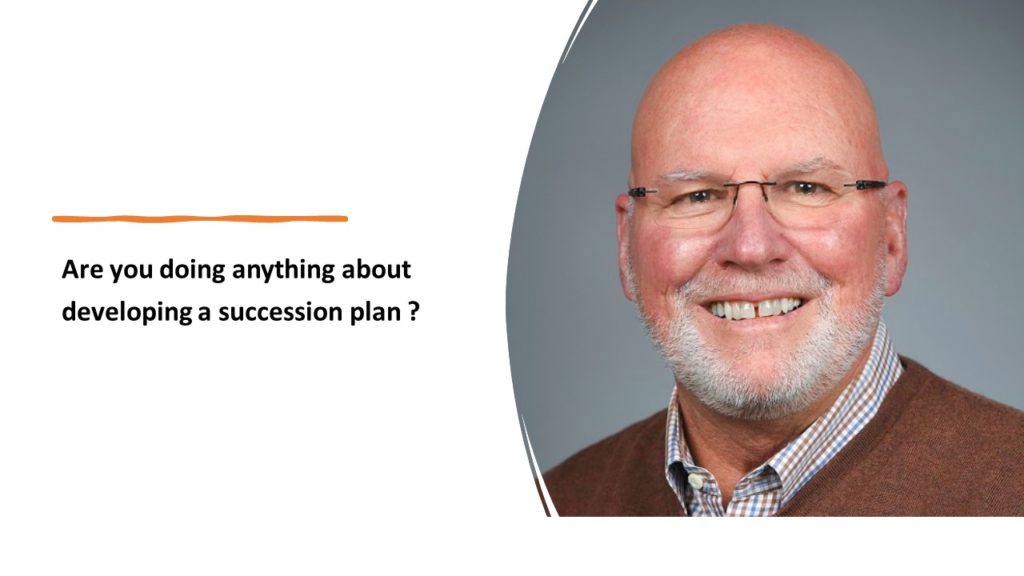
What Happens to Your Business IF…?
What would happen to your business IF:
- You were killed or disabled from an accident on your way home this afternoon?
- You have health issues that could lead to you becoming physically or mentally unable to continue to lead your operation?
- A business partner was to retire or have a sudden life-changing event that would prevent him/her from continuing to work in the organization?
Now that I have your attention, allow me to ask you the same question I have asked many executives in our industry over the last decade: Are you doing anything about developing a succession plan for your company?
Although I recently retired from a 47-year career in the construction industry, I continue to stay in touch with many business owners in the Carolinas construction market – including construction management firms, general contractors, specialty contractors, vendors, and service providers. While most of the executives I speak with acknowledge the fact that they are “not getting any younger” and realize they must plan for both their and their partners’ exit from the business, I am simply amazed at how many say they DO NOT have a well-defined succession plan in place at this time. On a positive note, many of them do have ideas in mind on how to handle such an event; however, those ideas have not been memorialized or shared with others in the business. Just imagine how helpful those closely held ideas will be to those who are left behind sorting through business matters at hand should something happen to you or a co-owner of the business. I can only answer: NOT VERY GOOD!
The same as creating a solid last will or trust for one’s personal estate, it is essential that you take the time to develop an effective succession plan for your business. Without a plan in place, there are simply too many things that could potentially negate the continued operations of the business and reduce the value of the company one has worked an entire career to build.
I encourage all business owners who have not yet developed a specific plan, to take off your “Superman or Superwoman capes” and come to grips with the fact you will not be around forever. Having a succession plan in place is critical. Not only is it important for you and your family, but also for your partners and your employees. After all, they have worked hard to help you build, grow and add value to your company. Don’t you think they would want the business to continue to grow and be successful even if you were no longer in charge of the operation?
Just as you have depended on each of them to help implement your strategies and add value to your company over the years, they have depended on you for career opportunities, income, benefits, and more so that they could enjoy a solid standard of living and provide for their families. How sad it would be if your company could not continue to provide these things after your exit from the company, whatever the reason.
Summary
Do you have an adequate “exit plan” in place that could be implemented quickly and effectively to continue the business operation should you have a life-changing event or should you be fortunate enough to make it to your desired retirement age?
Having a well-defined action plan will lighten the load for those who have the responsibility for moving things forward after your exit, and it will help ease anxiety for those employees who may question their future at the firm because you are no longer around.
For the sake of your family and your employees, MAKE the time to develop an effective succession plan – an adequate “exit plan” that could be implemented quickly and effectively to continue the business operation should you have a life-changing event – or should you be fortunate enough to make it to your retirement age. You will be glad you did!
Bill Caldwell is Principal with CMac Connect, LLC, focused on real estate investment/development, project management and consulting services to enhance operations, strategic planning, business development, and executive succession planning for select firms in the construction industry. Connect with Bill on LinkedIn.





